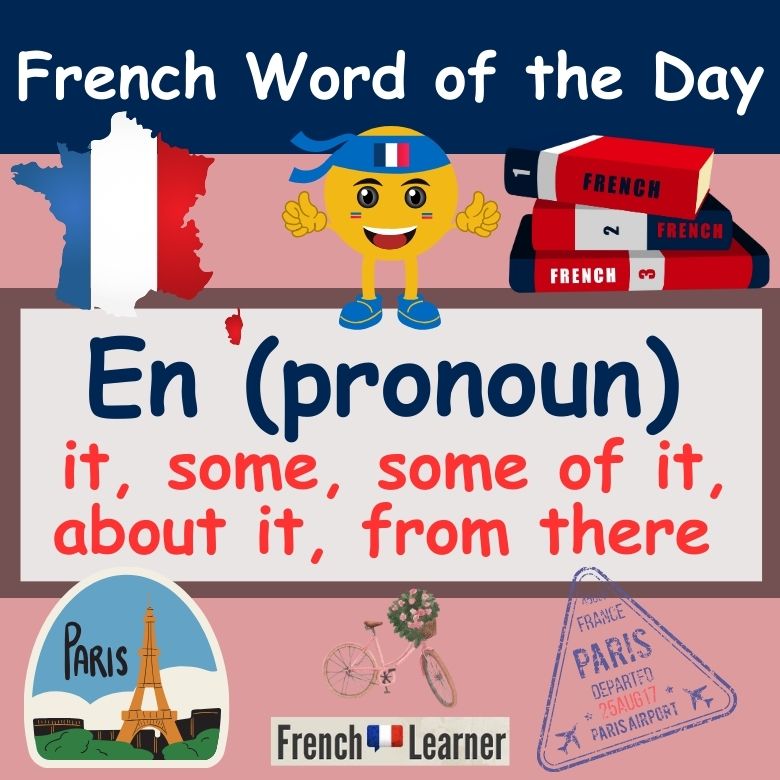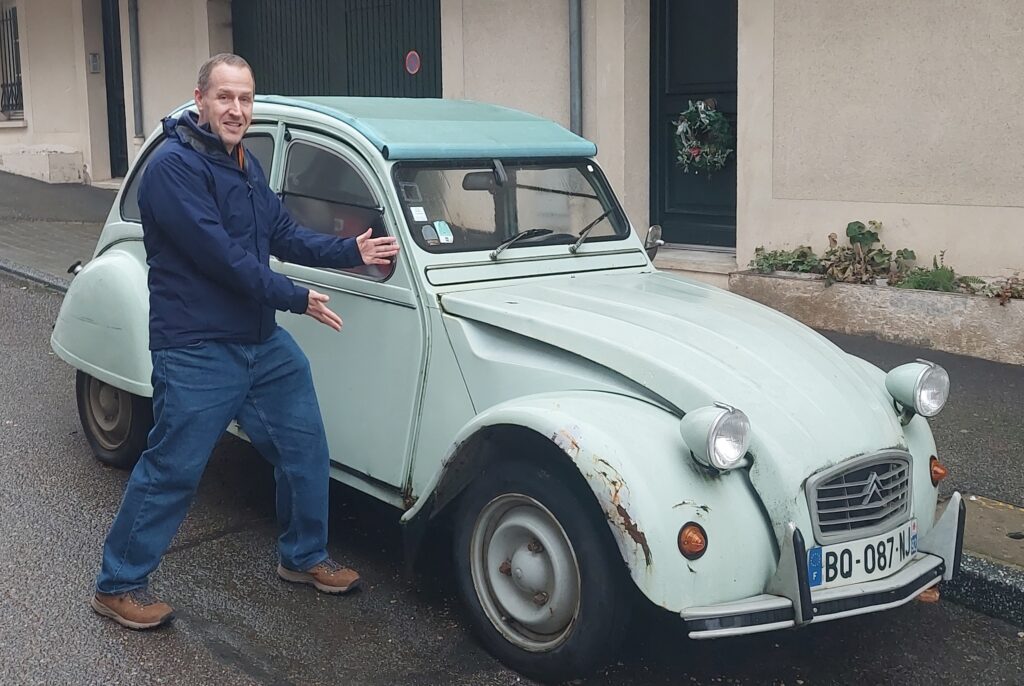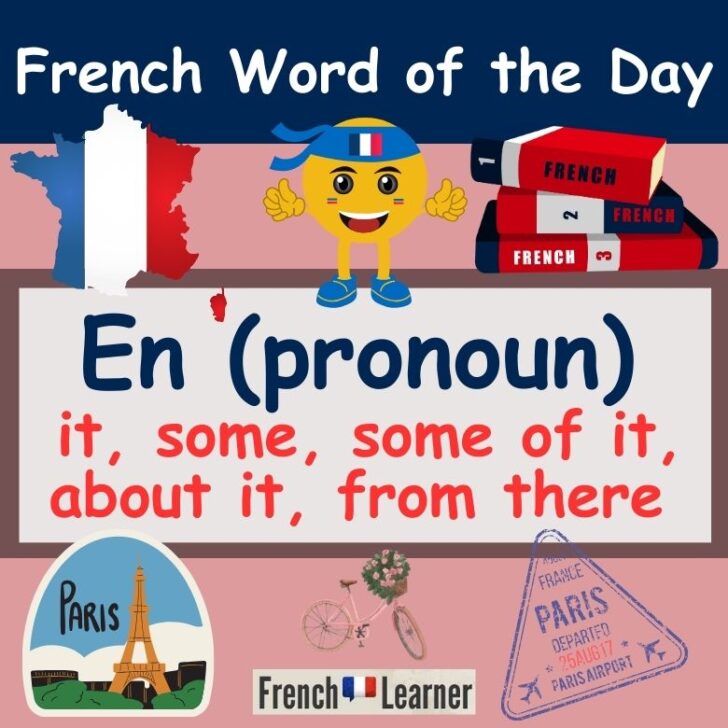In today’s lesson we’ll have a look at the object pronoun en, which has many translations including some, some of it, of them, about it and from there. Rather than getting into long winded grammatical explanations, I thought it would be a good idea to present several practical example sentences which you can start using in everyday conversation.
en
some, some of it, about it, from there

Word origin
The indirect object pronoun en in French comes from the Latin indĕ, meaning “from there”.
Two-second grammatial explanation
En in French is used to mean it, them, some, etc. for verbs followed by de. For example, “Je mange des bonbons” (I eat candy) becomes “J’en mange“ (I eat some / I eat them). Have a quick read through the object pronouns lesson on our site to get a more thorough understanding.
Example sentences
It was not easy to translate the sentences in today’s lesson. I used loose translations in several instances.
For this first example sentence, the en is refering back vacances (vacation). For this sentence, the reflexive verb se souvenir (to remember) is followed by the preposition de. Hence, the need for en.
On a passé de super vacances à Paris. Tu t’en souviens?
We had a super vacation in Paris. Do you remember?
For this second example, the reflexive verb s’en occuper (to take care of, responsability for, to handle) is also followed by de.
Moi, je m’occupe des détails. Ne vous inquiétez pas, je m’en occupe très bien !
I’ll take care of the details. Don’t worry. I’ll handle it.
In this example, the expression avoir besoin (meaning to need) is also followed by de.
J’ai besoin de la voiture aujourd’hui. T’en as besoin pour demain ?
I need the car today. Do you need it for tomorrow?
The expression avoir envie (to want, to fancy) is also follwed by de.
J’ai envie d’aller au restaurant. T’en as envie?
I want to go to the restaurant. Do you want to go?
This next example is a bit tricky. The en is used to refer back to what it is the person knows about. This page on our site covers the verb savoir (to know something factual in nature).
Tu parles toujours du même sujet. Mais qu’est-ce que t’en sais vraiment ?
You always talk about the same thing. But what do you really know?
For this next example, the en is included to replace vouloir des bonbons (to want some candy).
J’adore ces bonbons. Est-ce que t’en veux ?
I love this candy! Want some?
This next example uses en as the expression for “to exercise” is faire du sport.
Je fais du sport tous les jours ? Est-ce que t’en fais ?
I exercise everyday. Do you exercise?
I used my own voice for the next three examples. For this example, en is being used because the verb is penser de (to think of).
La situation est grave. Qu’est-ce que t’en pense ?
The situation is serious. What do you think?
This next example sentence has the “from there” usage.
Est-ce que tu viens de la plage ? Oui, j’en viens.
Are you coming from the beach? Yes. I’m coming from there.
For this final example using en as a pronoun, “Je n’en ai pas” means “I don’t have any”. I also used my own voice for this recording.
Tu as des nouvelles ? Non, je n’en ai pas.
Do you have any news? No, I don’t have any.
En usage as a preposition
En in French has another very common usage: The preposition for “in”.
Cet été, on part en France pour assister aux Jeux olympiques.
This summer we’re going to France to attend the Olympic Games.

Word of the Day Lessons | Lessons by David Issoskon
Related lessons

